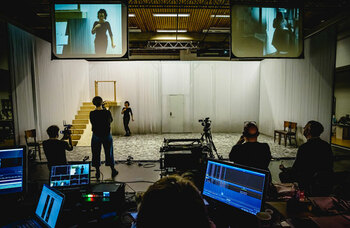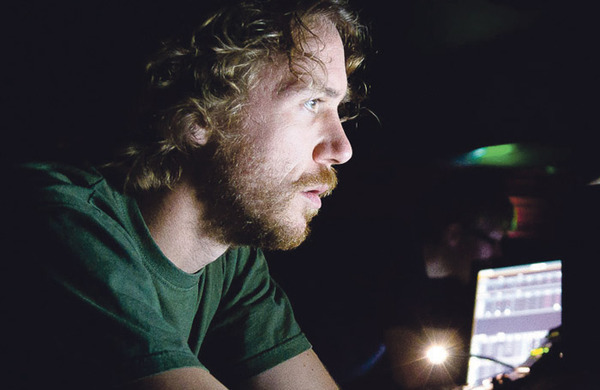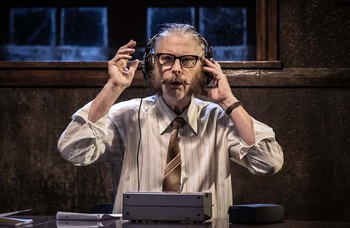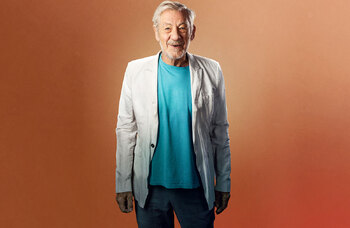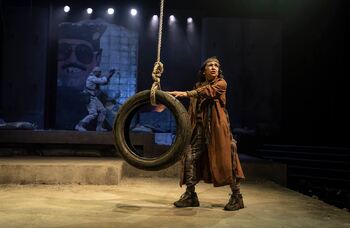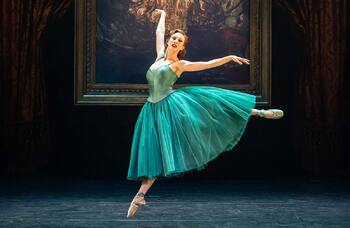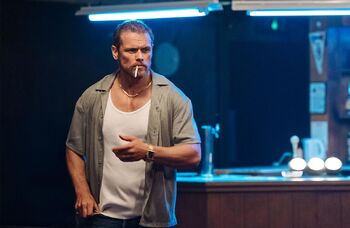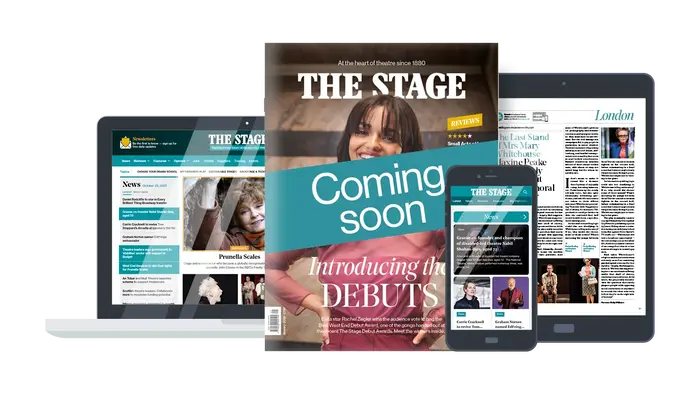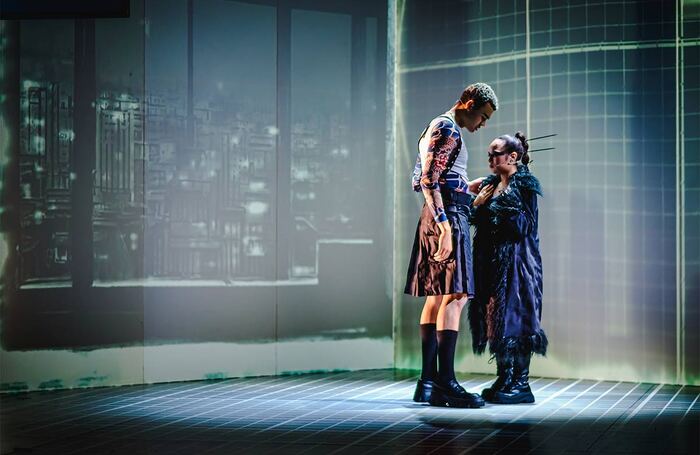
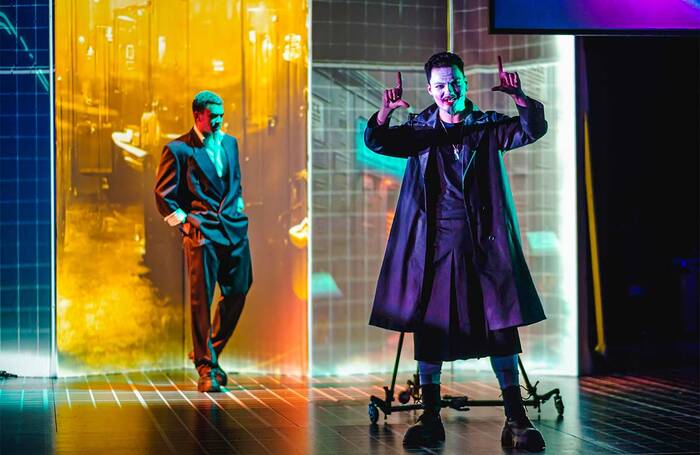
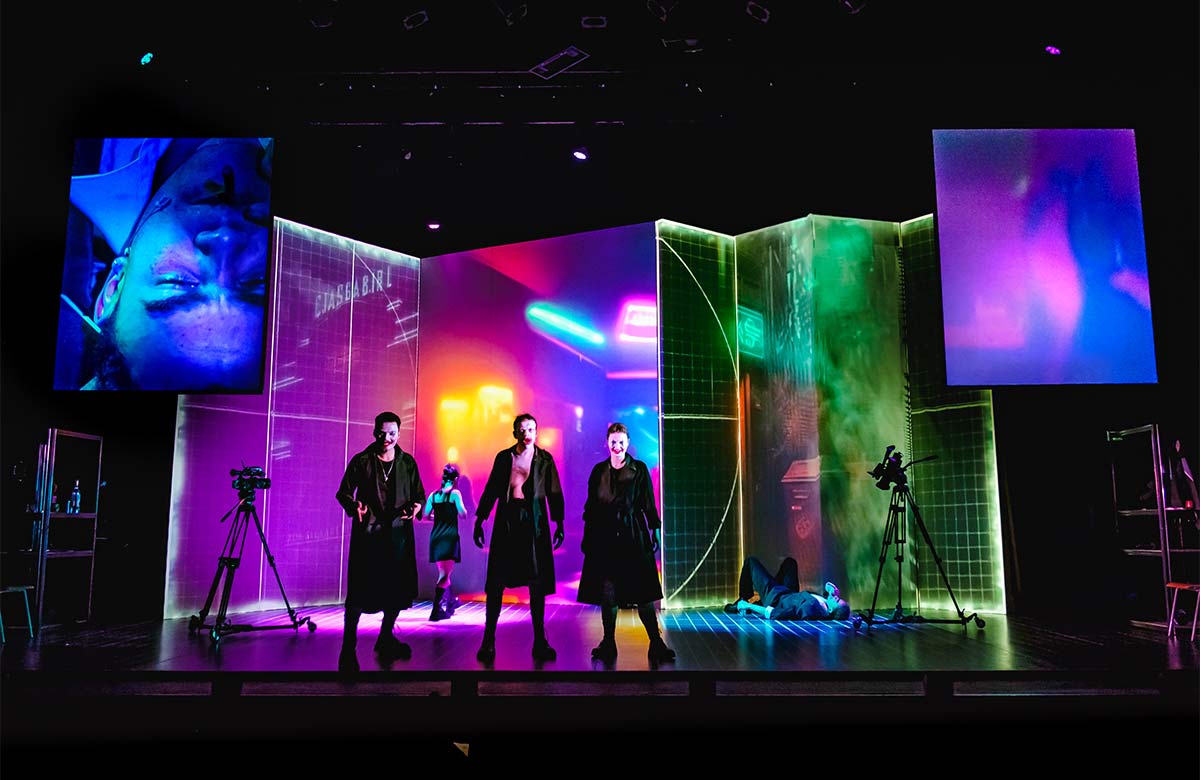
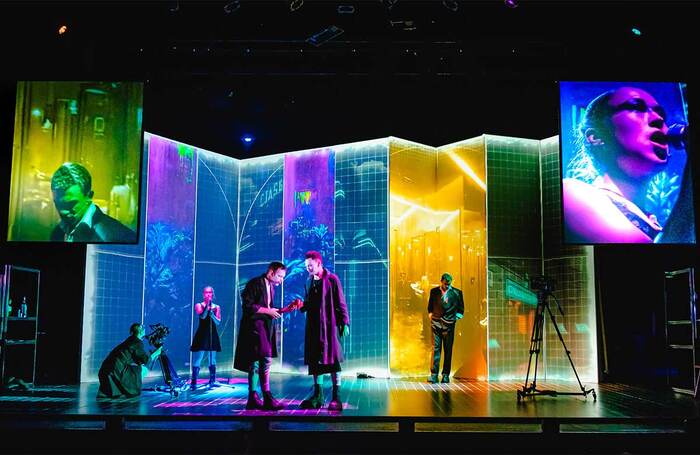
Bold, visually arresting reimagining of Shakespeare’s tragedy
Modern reimaginings of Shakespeare are more common these days than traditional productions. Just last year, a casually dressed Daniel Craig tackled Macbeth on Broadway, and in 2019 the Royal Exchange gave us Lucy Ellinson in futuristic military fatigues. So, attempts to breathe fresh life into Shakespeare’s tale of murderous ambition have to work hard to be visible. Aptly, Imitating the Dog is a company that has made its name standing out from the pack: its well-received offerings have included a multimedia remix of Dracula and shot-for-shot recreation of Night of the Living Dead. But although there is much to commend this touring production, co-directors and adapters Andrew Quick and Pete Brooks throw a little bit too much into the mix.
Their take is filmic and ultra-violent, presenting Macbeth as a low-level gangster making his way through the ranks of a Yakuza-like crime syndicate in a Blade Runner-style city. Simon Wainwright’s bombastic stage designs and floor-to-ceiling video projections make a substantial impact. Car crashes and dingy, neon-lit locations are recreated effectively, while mobile cameras – operated by the cast – throw striking tableaus and close-ups on to the screens. James Hamilton and Rory Howson’s sound designs are also suitably propulsive, especially during Macbeth’s climactic knife fight with Macduff.
A cast of five is cleverly deployed. Benjamin Westerby and Maia Tamrakar make a younger leading couple than we’re used to, while the remaining three actors play all the other roles with a committed zeal, including the witches, who serve as a Greek chorus, revelling in the chaos and destruction that they have foretold. But the production is at its best when Shakespeare’s verse is left to speak for itself. The addition of a gritty backstory and concurrent explanations of the action make the production exposition-heavy. And scenes that should be devastating – such as Macduff’s discovery that his family has been slaughtered – are ramped up to melodramatic levels, as if competing with the visual fireworks.
One change that works extremely well, however, is the expanded role that Tamrakar’s scrappy and resourceful Lady Macbeth plays in proceedings, making up for the fact that the character is usually largely absent for the final few acts. Here, rather than dying offstage, Lady Macbeth feigns madness, beats her captors to death and drives off into the sunset. It is a welcome remix in a production that otherwise falters when straying too far from the play’s strengths.
More Reviews
More Reviews
Recommended for you
Most Read
Across The Stage this weekYour subscription helps ensure our journalism can continue
Invest in The Stage today with a subscription starting at just £7.99
